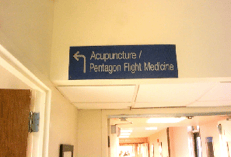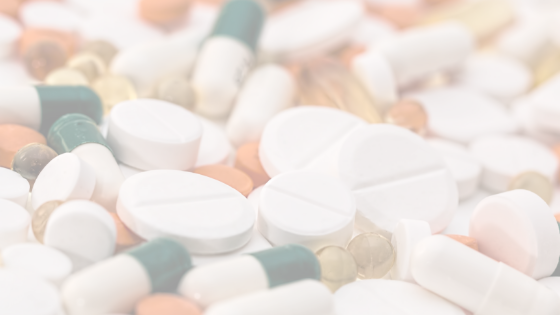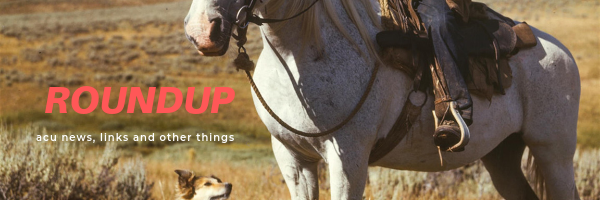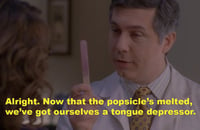Rachelle Lambert, LAc is the owner and founder of RA Harmony Asian Medicine. She is also the Unit Coordinator and Research Team Lead for the Colorado Acupuncture Medical Reserve Corps.
What was your education and experience prior to AOMA?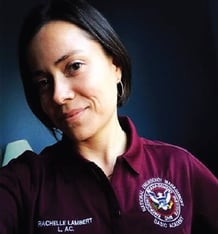
I joined the 4 year MAOM program at AOMA in 2005. Pursuing acupuncture and Chinese herbs is the first career path in my life. I completed my graduation requirements for high school on the memorable date of September 11th, 2001. After high school I attended Austin Community College to receive the perquisites needed to join AOMA.
Tell us about your journey to AOMA, what led you to Acupuncture and Traditional Chinese Medicine?
I was born and raised in Austin, TX. My entire life I wanted to be an archaeologist, but one day I had some friends talk about acupuncture treatments at a local acupuncture college (AOMA) and it dawned on me that was the career path I was meant to pursue. Of course, once I started internship during the program it was super rewarding to use ancient medicine to help people feel better. Even though I never became an archaeologist, becoming an acupuncturist allowed me plenty of opportunities to enjoy archaeology!
What did you learn at AOMA that you use everyday in The Real World?
The training I received at AOMA is invaluable. Patients in Colorado tell me all the time how unique and comprehensive my training is. Working in the field I find it valuable to have skills in various styles of acupuncture, pulse diagnosis, and having knowledge of scalp and auricular acupuncture.
In everyday life, I forget to practice my qi gong and tai chi on a regular basis, but when I am in the field of emergency management I use it everyday. It helps me stay my best for the people I am supporting. When I am at FEMA training at the Emergency Management Institute in Maryland, often times the class has had me guide the class in tai chi warm-ups and qi gong meditation exercises. Everyone wants to learn it when they see me doing it, and I find it hysterical that I am teaching mind-body techniques to groups of emergency managers at FEMA. It helps to remind them to take time for self-care. And during my deployment to Puerto Rico this was a great tool to teach the community to support their resilience.
Your work in emergency response is outstanding, how did you get involved in this work?
I have always dreamed of offering acupuncture to global communities did not have the opportunity to experience acupuncture. I feel my love of emergency management started during my time working on cruise ships as an acupuncturist where I learned extensively about the US Coast Guard laws and regulations. They are thorough and very strict the procedures intended to save lives. No matter your position, as a ship crew member you are required to train and drill weekly so all hands-on deck would be available during an emergency. As an acupuncturist, I learned how to fight fires with a fire hose, close water tight doors, stabilize frantic passengers, lower life boats and jump down a chute into a life boat, and help pull others from the sea into a lifeboat, to ensure survival. It was incredible to me that regardless of your background anyone can be trained to make a difference and save lives. In addition, I learned the valuable skill of speaking/communicating in a way that even non-English speakers can understand.
What would you like everyone to know about you, your interests, passions, hobbies, etc?
Since I was 3 years old, I have practiced origami and it became a valuable skill during deployment to support both Hurricane Irma and Maria in Puerto Rico in 2017. Knowing qi gong and tai chi also became valuable. These tools have saved my body and mind during all of my emergency deployments both domestic and international. They stabilize me as an emergency responder and allow me the chance to re-boot and remain 100% so I can be my best for the communities I support. They also are skills easily taught to others, providing them the ability to cope with extremely stressful situations.
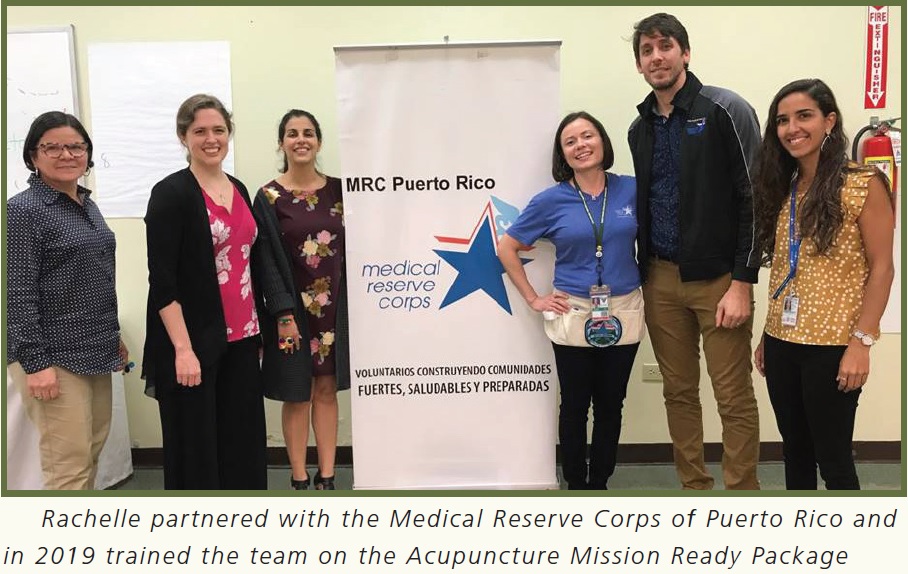
Please share anything else you would like about yourself and your work.
I moved to Colorado in 2014 during the first year of creation of the Colorado Acupuncture Medical Reserve Corps. Today if you want to be integrated into a disaster response in a professional way, a responder must be trained in Incident Command System (ICS) and National Incident Management System(NIMS) to speak a common language and offer a structure for response that is evidence based.
Captain Rob Tossato created the Medical Response Corps (MRC) program to vet and train volunteers before a disaster occurs. This includes; verifying credentials, background checks, and ensuring a smooth system to organize volunteers and ensure safety for everyone involved. This reduces the chaos that comes with disaster situations. With the Medical Reserve Corps, program volunteers have the opportunity to train and drill with a team, are included in networking opportunities and exercises with many agencies involved in emergency response, practice skills ahead of time, establish critical relationships, allow for official request for deployment, and participate in healthcare coalitions.
I became the volunteer leader of the Colorado Acupuncture MRC in 2016 and have worked hard with my team to create buy-in from the leaders of all national MRC teams. We have led by example, and our work recognized and published. We authored the Acupuncture Mission Ready Package, and created the first pilot research study exploring the feasibility and acceptability of acupuncture in emergency management (funded by a grant I authored with the National Association of City and County Health Officials).
For the last three years, the work we have done has created buy-in with many leaders throughout the nation and allowed acupuncturists to join these teams on a nation-wide scale for the first time. My goal is to make our profession a paid deployable position with FEMA. I plan to infiltrate the system and continue extensive training to continue in my second career as an emergency manager with FEMA.
What agencies do you work with? Is it typically a paid contractor gig or volunteer work?
The first thing I want to express with the acupuncture profession as a whole is that this is volunteer work. We need to spearhead the movement of volunteer culture in the acupuncture profession, as I see it flowing in other healthcare professions. It is hard work, but so rewarding, and someone has to do it. As far as I know there are no paid acupuncture positions in the world of emergency management... yet! We have to start somewhere and volunteering to get the resource out there in the world is the best way to educate the global population in this valuable resource.
Remember, the acupuncture profession just got an occupational code, we have just started our work in national and global recognition. So far the VA is the only organization I know of that pays acupuncturists as part of government.
In my personal opinion, we can make a huge influence by joining federal and state approved teams. Remember: infiltrate the system! These teams are the most influential during an emergency response, they are the ones who are officially requested, and they follow guidelines of preventing self-deployment (meaning you don't show up to a disaster unless you are called upon by an authority).
Which organizations do you recommend students look into if they are thinking of doing this kind of work?
If considering this line of work in your future, please stay professional and understand the world of emergency management - never show up to an incident unless you have been officially requested (this is known as self-deploying and can be damaging to trust in the acupuncture profession). There are so many things happening in an emergency, it is not the time to start your education and networking as an acupuncturist. People coordinating the disaster have lives to save, and are going through a lot of stress themselves.
The best time to do your networking and education on the resource is when a disaster is not happening. Make your connections and build your teams ahead of time. You can make a lot of influence if you can participate in drills, have networking events such as provide treatments to fire departments, public health departments, offices of emergency management, and participate in local healthcare coalitions. If you know a person ahead of time, you trust them, and you know what they are capable of doing, you will be called into the field during a disaster and make the most influence.
Teams I have found as a good place to start would be the Medical Reserve Corps (MRC), Team Rubicon, and the American Red Cross. I am currently a registered volunteer with the Colorado Acupuncture MRC, Colorado STAR MRC, MRC of Puerto Rico, Team Rubicon, and the American Red Cross.
When were you last called to serve as an acupuncturist? How long did you stay for?
First of all, I volunteer throughout the year. My work is either in deployment or non-deployment times. For example, once a month I lead a team to offer treatments at the Nederland Fire Station, and once a month I lead a team to offer treatments at the Four Mile Canyon Fire Station. I made these relationships during deployments when I was called to respond, as well as making relationships during FEMA training. I have been supporting these teams for three years now. In April I lead a team to participate during a functional exercise and drill with the Boulder County Emergency Operations Center, and that was a half-day exercise.
My last deployment was a half-day deployment during the Sunshine Canyon Fire response in 2017, but they were able to manage the disaster fairly quickly so it was a short deployment. The most memorable experience and longest time I was deployed as an acupuncturist was during the Cold Springs Fire in 2016. The response phase was 10 days long, then we transitioned into the recovery phase which lasted for several months. During the response phase I sent teams to the firefighters basecamp, the emergency operations center coordinating the boots on the ground, and the incident command post with the incident command staff.
What is your most memorable experience as an EMR Acupuncturist?
In 2017 hurricanes Harvey, Irma, and Maria rocked our nation. The Emergency Management Assistance Compact (EMAC) requested a disaster behavioral health team to deploy to Puerto Rico. To our knowledge, this was the first time a behavioral health team was requested through this system (and does not mean this is the last).
The State of Colorado won the bid to provide this team and the request came through for volunteers with our state volunteer registry for people who spoke some level of Spanish and were trained/certified in Psychological First Aid. Due to the fact I trained ahead of time, was a registered volunteer with Colorado, and was trained in disaster response, I made the team. My travel, meals, and accommodations were all paid for, and I was paid acupuncturist wages for every hour I worked. This is the first time I have ever been paid to be part of a deployment.
The deployment was for three weeks and we supported local behavioral health teams in Puerto Rico. Our mission was psychological first aid, and we traveled to about 30 refugios (shelters) to provide assistance in healing and emotional recovery. Even though our mission was not to provide acupuncture, I was able to share my skills as an acupuncturist and provide the local community group Qi Gong exercises, Tai Ji stretching, and share different acupressure points and lifestyle choices that can support resilience and recovery. At the end of the day I provided acupuncture treatments to my team keeping them at their best, as well as several branches of the military, FEMA, and other supporting agencies we housed with.
This deployment helped me create new partnerships, and I have since worked on a year-long project partnering with the Medical Reserve Corps of Puerto Rico to train their unit in ways they can use the acupuncture resource. I joined the unit as a volunteer, so next time a disaster occurs, the team not only has ways to use immediately use acupuncture through the Acupuncture Mission Ready Package Training, but now I have a chance to support the team and offer acupuncture to Puerto Ricans.
Do you qualify for any loan forgiveness benefits as a corps member (asking for a friend)?
Since this is only volunteer work, and not a salary based position, there are no loan forgiveness benefits with the Medical Reserve Corps. In order to qualify for loan forgiveness you must have 50% or more of your salary coming from a government organization or 501c3 for 10 years. That is why we need to create a movement in the acupuncture profession to volunteer, you have to start the work somewhere.
My hopes are that we can create paid positions in emergency response. It is all about the experience you have and not your educational training. Those with real-life experience in deployments will be considered higher up for the interview process and will be the first considered for those paid positions. My biggest suggestion is to get your experience now so when paid opportunities do come around then you can have a better chance on nabbing one of those positions.
For those interested in loan forgiveness I would suggest becoming employed with a 501c3 or with the VA as an acupuncturist.
Do you have your own practice or work for another clinic? If so, how do you balance emergency response work with your regular clinic patients?
It all depends on how busy your practice is and how many hours you can volunteer. When I first moved to Colorado and was growing my practice I had the time to donate 10-25 hours a week to be in a leadership position. Now that my practice has grown and I am seeking employment as an emergency manager, I have stepped down from a leadership role and volunteer about 4 hours twice a month.
My patients know my passion to volunteer and participate in deployments so when an emergency does occur they are understanding when I call to reschedule them so I can close my practice for a day or more and help out the local community. My patients love the fact I do this work, and volunteering has even helped my practice grow. They know that supporting me financially allows me the chance to volunteer and indirectly supports the community.
What opportunities does your upcoming training at AOMA open up for participants?
This training will provide the basics you need to join many federally and state approved teams, such as the Medical Reserve Corps and Team Rubicon. Every team is different and training requirements may differ, but with my work in creating and growing the Acupuncture Mission Ready Package every class participant will have skills on how to modify the acupuncture resource in your specific community and your unit needs.
We will also train everyone with basic FEMA required training, such as ICS 100 and 700. We will also have an introduction to psychological first aid so people can have an understanding on how to use this in the field and in their practice, and I will guide everyone on how to get their certification.
We will talk about local volunteer opportunities, such as joining the University of Texas at Austin Medical Reserve Corps and the Williamson County Medical Reserve Corps. In addition, I will be talking in detail about the pilot study in which I was the principal investigator, partnered with the University of Colorado at Boulder Psychology department, and funded by a grant with the National Association of City and County Health Officials (NACCHO). Information provided about this pilot study can be used to help you with education and networking with the the acupuncture resource as a volunteer.
Any advice to students in school right now and students about to graduate?
Start training now! Start volunteering now! The more experience you have in the world of disasters and emergency management the more it will benefit you personally, benefit your practice, and benefit your local and global community. There are plenty of volunteer opportunities available right now, and so many rewarding ways in which you can volunteer even if you don't use needles. Remember, acupuncture is just one tool in the fast world of Traditional Chinese Medicine. We have to start somewhere, help me grow the movement on volunteering in the acupuncture profession!
Thank you so much for your time and all the work you do, Rachelle! Here are some links for those interested in learning more about Medical Response Teams:
Medical Reserve Corps
Team Rubicon Disaster Response
The American Red Cross
FEMA training Materials
About Psychological First Aid
Don't forget to check out our upcoming CEU and training opportunity with Rachelle:
https://www.eventbrite.com/e/acupuncture-emergency-response-and-medical-reserve-corps-volunteer-training-tickets-58664871209
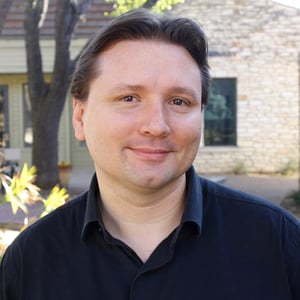 Billy Zachary is a licensed acupuncturist with over ten years of experience working as a professional practitioner. Since earning his master’s degree from AOMA Graduate School of Integrative Medicine in 2004, he has completed extensive training in the Hakomi method of mindfulness-centered somatic psychotherapy. He maintains an active clinical practice in Austin, Texas where he specializes in the use of acupuncture & herbal medicine in the treatment of emotional trauma.
Billy Zachary is a licensed acupuncturist with over ten years of experience working as a professional practitioner. Since earning his master’s degree from AOMA Graduate School of Integrative Medicine in 2004, he has completed extensive training in the Hakomi method of mindfulness-centered somatic psychotherapy. He maintains an active clinical practice in Austin, Texas where he specializes in the use of acupuncture & herbal medicine in the treatment of emotional trauma. 
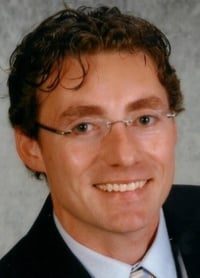
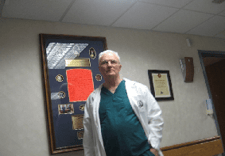 It helped me out tremendously and plays a major role in how I practice acupuncture, even today. I was a Navy Corpsman who was selected for the US Army’s elite 18 Delta School for Medics. I dealt with a lot of pain in the military and a large part of my practice is dedicated to treating pain.
It helped me out tremendously and plays a major role in how I practice acupuncture, even today. I was a Navy Corpsman who was selected for the US Army’s elite 18 Delta School for Medics. I dealt with a lot of pain in the military and a large part of my practice is dedicated to treating pain.